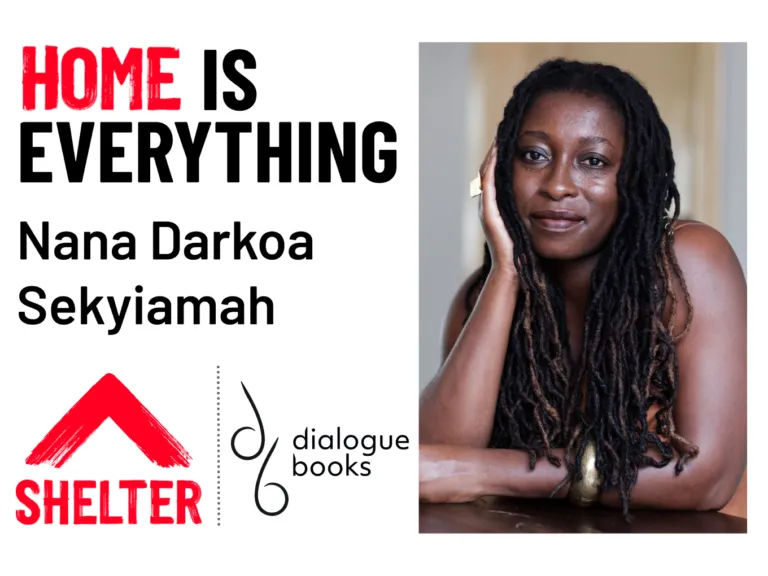Where can she call home?
Published: by Guest blog

Working with Dialogue Books, we asked five authors to write a personal response to Shelter’s core belief that Home Is Everything. Each week, we’ll be sharing one of these responses on our blog; exploring the history, the impact and the importance of home.
By Nana Darkoa Sekyiamah.
More than a mere roof over your head and four walls around your body, home is everything. It is a feeling; one I never quite felt in London, where people would often ask me, ‘where are you from?’
I chose to call Ghana home because I can take people to a small community in the Eastern region of the country and say, ‘here is Kwadarko: a small farming village that my great-great grandfather founded centuries ago’. But I am not really from Kwadarko. My paternal lineage weaves through many other parts of Ghana, including Adukrom and Cape Coast.
I am Akan and my clan is matrilineal. This means that our children are considered to belong to their mother’s family and traditionally, men pass inheritance on to their nephews and not their own sons. Yes: even matrilineal clans are patriarchal. The oral historian of the family – my grandaunt, Ma’am Fri, – told me of two matrilineal ancestors who travelled on foot for over 100 kilometers (from present day Kumasi to Twenedurase) to escape the warmongering Asante and find husbands. These women had the courage to leave their homes to recreate lives elsewhere. I like to think of them as my feminist ancestors; one of the reasons why I consider my African feminist community an ideological home.
Like most privileged people the world over, I spent much of the past year and a bit in a physical dwelling. I have worked hard to make it feel like home. I bought more plants for my little verandah to make it more green. I laid down a carpet in my home office so I could lie comfortably on the floor between meetings. I even painted the back wall of the office a bright blue because I was tired of all the cream walls I see in endless Zoom calls.
Not everyone is lucky enough to be able to make a dwelling a home. I know this to be as true of London – the city where I was born – as it is of Accra: the city I have chosen to call home. New luxury developments spring up here every other day staying empty for months or even years at a time. Sometimes I go walking in the mornings with my daughter and we walk past a house whose wall is bordered by trees with branches so wide that they form a canopy. On some early mornings I make out the outline of a woman’s body, wrapped in cloth, lying in the shade of the trees.
I wonder who she is and where she calls home.
Find out how you can join the fight for home, or read more from our Home is Everything series.